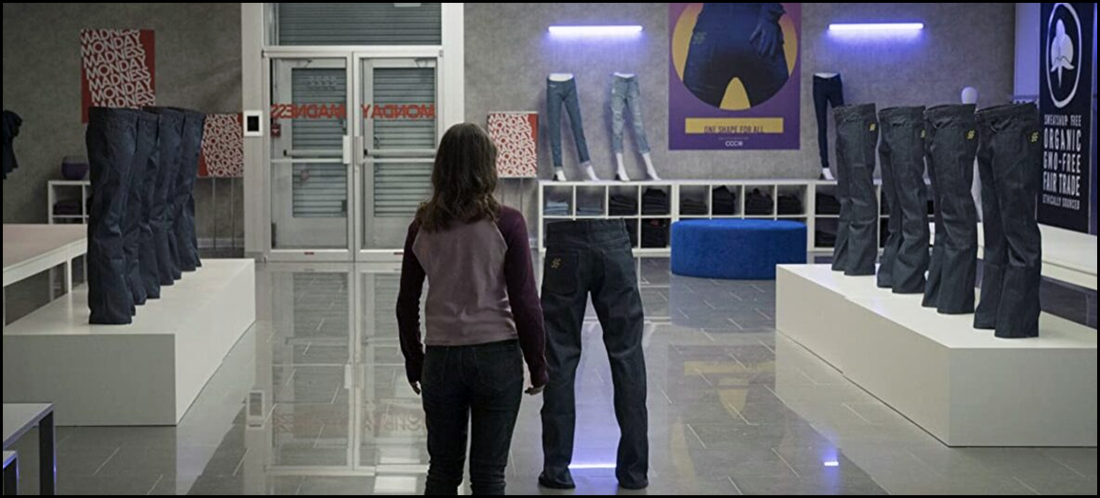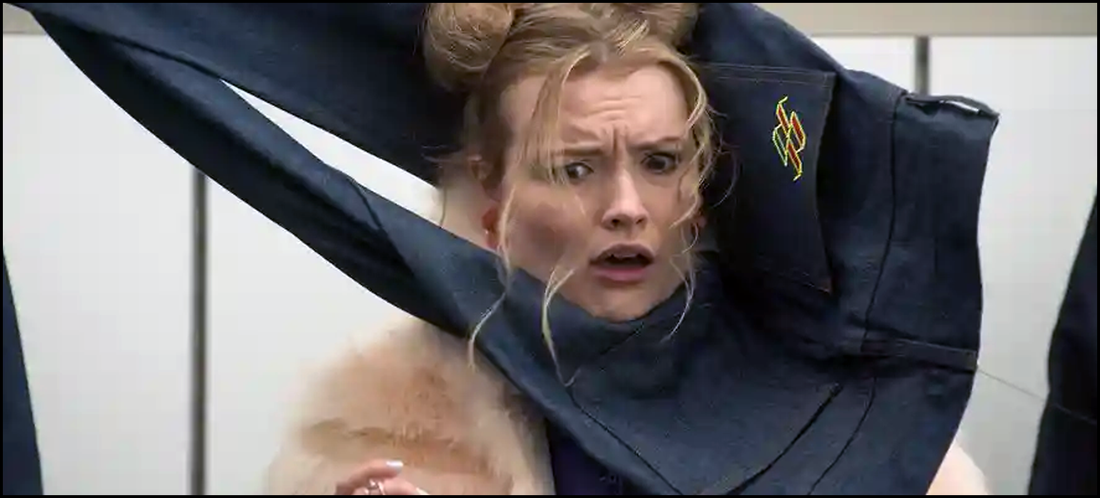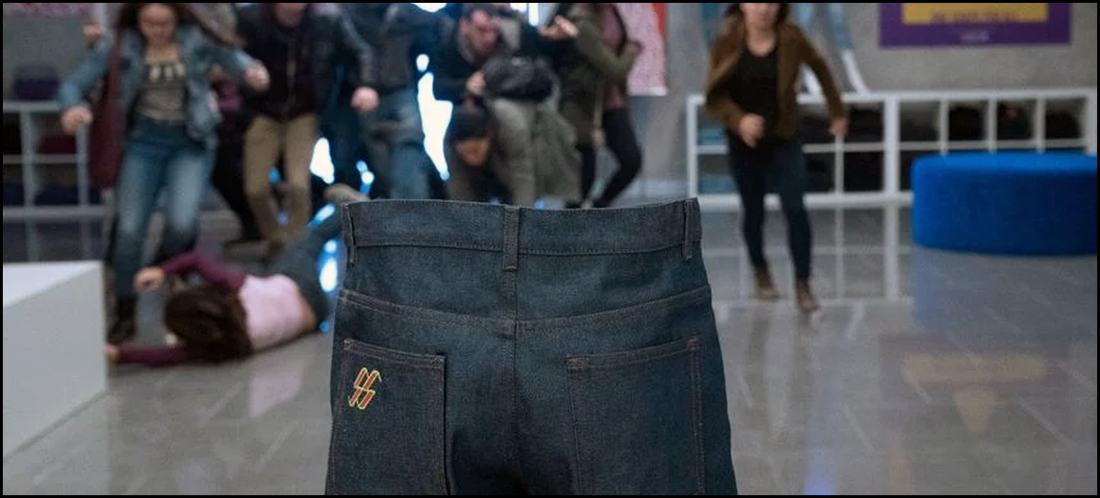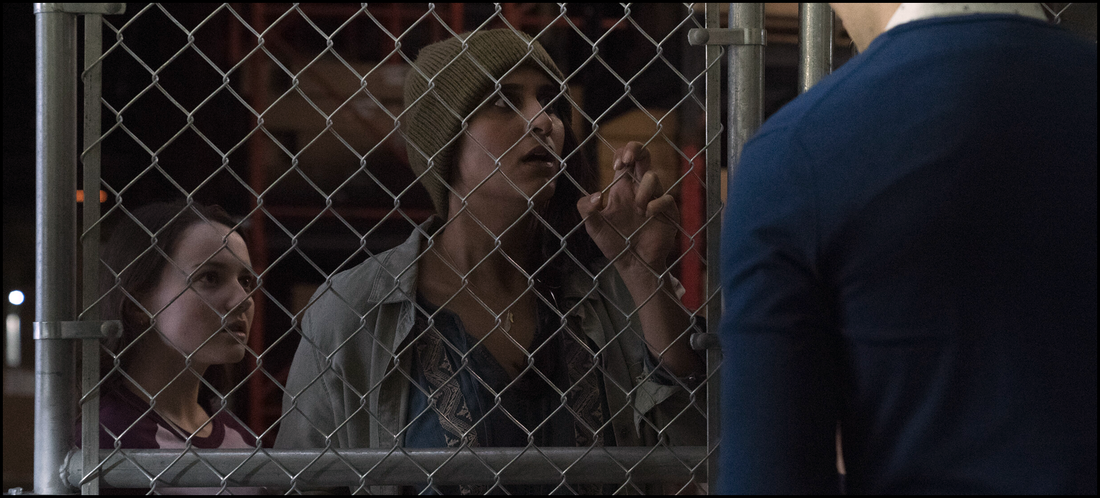In the 1980’s and early 1990’s, there were a string of cinematic comedies that kinda/sorta set the highwater mark for sheer unbridled lunacy: the films of David Zucker, Jim Abrahams, and Jerry Zucker embraced comedy in a way that had been sidelined since the flicks of Abbott and Costello and even the Marx Brothers put smiles on the faces of the audience. Their breakout hit Airplane (1980) reinvigorated laughs at the box office in a way that had disappeared for a generation or two, showing studios that people would come back again and again and again to something that distracted them from their humdrum lives even if only for ninety minutes. Top Secret (1984) turned their focus in a direction some found a bit too specific, but The Naked Gun: From The Files Of Police Squad (1988) but them back on top as they skewered the world of police crime procedurals that had populated the television dial since the 1950’s. Hot Shots (1991) put the world of Tom Cruise’s Top Gun feature under their comic microscope; and it definitely cemented the fate of former critical darling Charlie Sheen, casting him once and for all into the realm of comedy where he flourished for three decades.
What made these motion pictures work is that each stuck to effectively up ending their respective genres or sub-genres (i.e.: Airplane focused on the popular air-themed disaster movies of the 1970’s). Occasionally, the scripts would take an obvious or open swipe at something more popular from the era; but overall, the storytellers stuck with material that could be commonly tied back to their source material. This constant banging of the drum eventually wore down the feature’s hardest critics, insuring that a good time was had by all.
While the horror genre essentially escaped the learned eyes of the Zucker, Abrahams, and Zucker trio (for a time), it did draw the attention of other filmmakers. 1974’s Young Frankenstein from the immortal comic genius of Mel Brooks perfectly satirizes the great monster movies of the 1930’s, and the film remains highly regarded by fans and critics even today. 2000’s Scary Movie cast its fawning love essentially on dismantling the teen-based horror flick, and it’s enjoyed continual cinematic existence through a handful of sequels. Lesser attempts – 1981’s Saturday The 14th and 1978’s Attack Of The Killer Tomatoes – enjoy even cult status, largely because perhaps they’re too focused on one individual franchise or theme to enjoy broader acceptance.
Still, one thing was certain: there are big laughs hidden in big bloodshed.
2020’s Slaxx enters into the bloody fray by way the independent movie scene. While it may not break any new ground nor build up an excessive body count, I’d argue it’s still a noble attempt. Despite some missteps, the film still properly disassembles the contemporary slasher formula and puts it back together with the requisite number of laughs (or groans) necessary to find middling success, though it could’ve benefitted from sharper focus once the crap hits the fan in its second half.
From the product packaging:
“A possessed pair of jeans is brought to life to punish the unscrupulous practices of a trendy clothing company. Shipped to the company’s flagship store, the killer jeans proceed to wreak carnage on staff who are locked in overnight to set up the new collection.”
The best that can be said about Slaxx – and it’s definitely intended wholeheartedly as a compliment – is that it’s clearly all meant to be a silly comedy: there’s nothing in here which indicates that the filmmakers ever intended for any of this to be taken seriously. No element of the script – from the curiously vague set-up to the mockery of the corporate retail store environment and all the way down to the ‘slashing’ of the victims – escapes their wrath. Actually, it’s kinda/sorta nicely handled, much in the same way that those of us who grew up in the era of the Zucker, Abrahams, and Zucker comedies were rewarded with their unbridled zaniness. Turn off your brain and settle in for the duration: you’ll likely enjoy what’s served up in under 80 lean and mean minutes.
Still, Slaxx fails to form fit the farce perfectly, much like these environmentally friendly jeans that bite off more than they can comfortably chew.
What works?
Well, there’s our lead Libby McClean (played by Romane Denis) – the fish out of water for our tale – who starts out simply naively following her passion to find the perfect jeans only to spend the night running for her life. She imbues the film with the right amount of inexperience, gullibility, and girl-next-door unstated, mousy sexiness that it becomes expected for audiences to root for her, the way they would any damsel in distress in similarly themed genre pictures. Then there’s the up-and-coming hipster store manager Craig (Brett Donahue), the smarmy faux-executive who has so bought hook, line, and sinker into the corporate philosophy that he practically drools self-help gobblety-gook. He spends the bulk of the film so brainwashed by capitalist drivel that – once the bodies start piling up – he’ll stop at nothing to conceal the dirty deeds from his staff in mortal peril. And I’d be a fool if I failed to point out how the film’s store for Canadian Cotton Clothiers lampoons the trendsetting Apple phone outlets, the Gap, and even Old Navy locations pitch perfectly … all the way down to the sterile environments, the obsessive color-coordination, and the inspirational signage encouraging customers to make the world a better place.
Well, I’ve always warned that comedies are the hardest ‘sell’ in the world of arts.
What each of us finds funny widely varies, and striking the perfect chord – one that resounds with the widest audience possible in order to guarantee box office success – relies largely on mixing the perfect formula and allowing it to saturate every component of the production. Here, Slaxx takes its eyes off the prize in the second half when it turns away from some of the character-driven lunacy of the set-up in order to play in the realm of the traditional slasher film. Obvious jokes become harder and harder to find – granted, there’s only so much funny about so much bloodshed – and what started out as one pair of homicidal jeans suddenly becomes a whole retail outlet of them with no explanation as to how that was accomplished. (There was a hook in the set-up, but the hook gets dispelled once the “killer” identity is revealed.) What little logic there was breaks down, and the ending really became more about piling on than it was about delivering expectations.
The best jokes get the best results when the punchline follows an effective set-up. Slaxx works best in setting up its world – one not very different from the one you and I occupy – but I thought it lost sight of its punchline when storytellers Patricia Gomez and Elza Kephart abandoned its smart social satire in favor of its dumb slasher comedy. A world where jeans can kill you – literally – is way, way, way out there; so perhaps they should’ve dialed back some of the smarts of its first half in favor of dumbing down the narrative. The result may not have been as endearing or incisive, but at least it would’ve been even. As it is, I’m not sure how much ‘rewatchability’ there is to Slaxx … and it’s that crash consumerism so ably caricatured in the first half that’s required to make a film of this type a commercial hit.
What started out so smart turned out dumb in the final reel … albeit benevolent … well, as benevolent as murderous denim can be.
(Mildly) Recommended. As imperfect as Slaxx is from concept to execution, the flaws are mostly benign. (I’m apt to overthink my comedies from time-to-time, so you’ll have to pardon me my own excesses.) I suppose its heart is in the right place, especially with its anti-conformity sentiments as it constantly mocks ‘big corporate capitalism’ in its first half only then to succumb to ‘routine slasher mentality’ in the second. Yes, it was fun to watch … I just wish it could’ve been a bit smarter than its fabric.
In the interests of fairness, I’m pleased to disclose that the fine folks at Shudder provided me with a DVD screener of Slaxx (2020) by request for the expressed purposes of completing this review; and their contribution to me in no way, shape, or form influenced my opinion of it.
-- EZ





 RSS Feed
RSS Feed